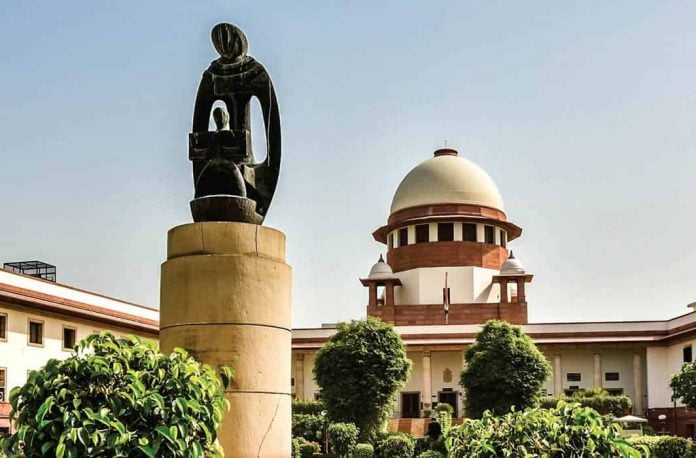New Delhi: The Supreme Court today issued notice on a plea challenging the validity of part of the National Commission for Minority Education Institution Act, 2004 for failing to recognize minorities at the state level.
The bench of Justices Sanjay Kishan Kaul, Ajay Rastogi and Aniruddha Bose was hearing a petition filed by Advocate Ashwini Kumar Upadhyay, challenging the validity of Section 2(f) of the NCMEI Act 2004, for not only giving unbridled power to the Centre, but also for being arbitrary to Articles 14, 15, 21, 29 and 30 of the Constitution of India.
The petitioner has submitted: “The facts constituting cause of action accrued on 06.01.2005, when the Act came into effect and by using unbridled power under S. 2(f), Centre arbitrarily notified 5 communities viz. Muslims, Christians, Sikhs, Buddhists and Parsee as minority at national level against the spirit of TMA Pai ruling.
“It is pertinent to state that after the judgment in TMA Pai Case, [(2002) 8 SCC 481] the legal position is very clear that the unit for determining status of linguistic and religious minorities would be State,”added the petitioner.

The petitioner has submitted that followers of Judaism, Bahaism and Hinduism; who are real minorities in Ladakh, Mizoram, Lakshwadeep, Kashmir, Nagaland, Meghalaya, Arunachal Pradesh, Punjab, Manipur, cannot establish and administer educational institutions of their choice because of non-identification of ‘minority’ at State level, thus jeopardizing their basic rights guaranteed under Article 29-30. Their right under Articles 29-30 is being siphoned off illegally to the majority community in the State because Centre has not notified them ‘minority’ under NCMEI Act.
Hence, the petitioner has urged the court to direct and declare that followers of Judaism, Bahaism and Hinduism, who are minorities in Ladakh, Mizoram, Lakshwadeep, Kashmir, Nagaland, Meghalaya, Arunachal Pradesh, Punjab and Manipur can establish & administer educational institutions of their choice in spirit of the TMA Pai Ruling.
In the alternative, it has been prayed to direct the respondents to lay down guidelines for identification of minority at State level, in order to ensure that only those religious and linguistic groups, which are socially economically politically non-dominant and numerically inferior, can establish and administer educational institutions of their choice.
-India Legal Bureau


